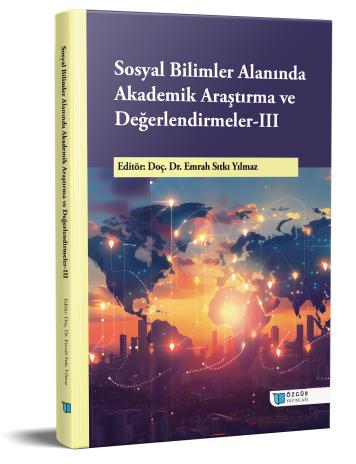
Daily Life Practices of Religious Officials: The Case of Muğla and Istanbul
Chapter from the book:
Yılmaz,
E.
S.
(ed.)
2024.
Academic Research and Evaluations in the Field of Social Sciences-III.
Synopsis
In today's Turkey, religious life is kept alive through both traditional and public organizations. Although the legal boundaries of these two spheres are clear, sometimes two different cultures and practices intertwine and the boundaries disappear. So much so that, in addition to an official religious official, a volunteer person can lead the community or perform a religious ritual at the same time in religious ceremonies. Keeping these transitions in mind, this study attempts to understand and interpret the spheres of action of official religious men and women in contemporary Turkey and the degree to which they influence and direct individuals and groups. The study was designed based on qualitative research techniques and its field consists of organizations affiliated to Muğla Menteşe Mufti's Office and churches in Taksim, Beyoğlu, Kadıköy and Maltepe districts in Istanbul. In the study, in which snowball sampling was used, in-depth interviews were conducted with a semi-structured interview form. The data obtained from the interviews were collected under three themes: 'being a religious worker in today's Turkey', 'the relationship between religious life and daily life' and 'acting in the private sphere'. The collected data were interpreted through descriptive analysis and field notes. In the interviews with seven Muslim religious officials and four Christian religious officials, it was observed that the influence of religious officials in society has diminished and with this the functions of the temples have shrunk, leaving only a center of worship or a religious touristic center.

